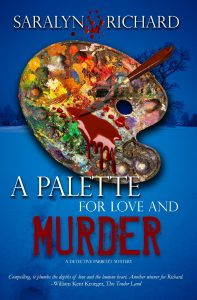Recognizing similarities and celebrating differences…
Sometimes I watch shows from the major networks, preferring mostly dramas over sitcoms (what you might expect). I often end up criticizing how badly written the screenplays are—movies are often worse though—but I read so much that late at night my eyes focus better on the TV screen than on my Kindle page.
So I noticed when the Asian actors disappeared from Hawaii 5-0 a while ago (maybe that’s why the series ended last Friday?)—I hadn’t watched it much since that happened—and when FBI didn’t choose the Muslim guy as the lead—the female lead is now “on leave” working undercover, so maybe other viewers felt the same way. I also noticed that black actors play stereotypes on sitcoms like The Neighborhood and Bob [Hearts] Abishola, but the actor playing Abishola (she’s a black woman, in case you’re wondering, so Hollywood gives her two strikes to begin with) is much better than the comedian main character (a black man), but black actors are doing better than black directors in Hollywood now.
That said, I’m sure that most of these four shows don’t play well in certain sections of the country that I shall not name here. How we perceive stories, whether told in a book or on the TV or movie screen, is greatly influenced by our backgrounds and cultural surroundings. I loved a recent FBI episode for faithfully portraying the inequities of ICE policies, but maybe some people were turned off by it. There are still some people who want to “purify the nation” by either making non-whites into slaves, or by kicking them out, and you can be sure those people applaud the current administration’s anti-immigration policies (only one presidential adviser seems to be determined to create them, much to the concern of his own relatives!).
Good novels invariably recognize our similarities and celebrate our differences, though, because their writers put that into words and tell stories covering the whole human spectrum. Both my parents’ attitudes and growing up in a culturally diverse California taught me to do that long before I published my first novel (Full Medical, 2006). My long sojourn in South America only added to that background. If you’ve ever wondered why my books hold up a mirror to the wonderful diversity found in our country and world, that’s the reason. Better said, I love the beauty found in that diversity where others, hopefully still a minority, might feel only rage and hate.
One interpretation I’ve made of Clancy’s maxim that fiction has to seem real (to be sure, he rarely carried it as far as I do) is that we need to include cultural diversity in our fiction. The real world is diverse, like it or not. There are differences, and we should celebrate them in our storytelling. Among human beings on this planet, there are more similarities than differences, and we should celebrate that too. Even if TV and Hollywood continues to resist because of some perceived marketing constraint, authors can lead the way in doing just that. Sure, we should avoid cultural stereotypes as much as we can, especially when they overemphasize the differences, but we should celebrate the variety of cultures, especially considering the melting pot that the US has become. And, in fiction, we can show how people can resolve their differences and just get along, to paraphrase Rodney King.

I’m not saying that diversity has to be included in every novel. That’s absurd. However, just from the writing aspect, it can become an important plot device. For example, in reading Saralyn Richard’s two mysteries, Murder in the One Percent and A Palette for Love and Murder (both reviewed in this blog), I often smiled as the main character, a black police detective, moves among the rich white folks of Brandywine Valley. Whether the author did this on purpose or not, this choice was very effective in her stories, because it allows her main character to stand up, be different, and play against the stereotype of the white New York Irish cop, which no longer exists in the city’s police force, by the way, except in the very top echelons. For the same reasons, my homicide detective Rolando Castilblanco is Puerto Rican and his partner Dao-Ming Chen is Chinese-American. Does any of that turn you off? You shouldn’t read these books then. Or maybe you should?
***
Comments are always welcome.
In these troubled times, anthologies and collections offer readers small and varied bites of reading entertainment if they’re lacking the time to become immersed in a novel. The #WolfPackAuthors’ Once upon a Wolfpack and Howling at the Moon are anthologies of short fiction and poetry that offer very tasty bites indeed, and all royalties go to good causes. Yours truly has a short story in the second anthology. You can complement those two with some of my own, a few at Amazon and others for free—see the list of PDFs on the “Free Stuff & Contests” web page where you can download with only a few clicks. Enjoy!
Around the world and to the stars! In libris libertas!
